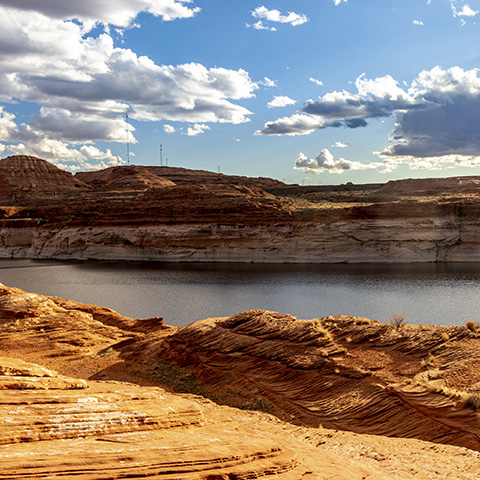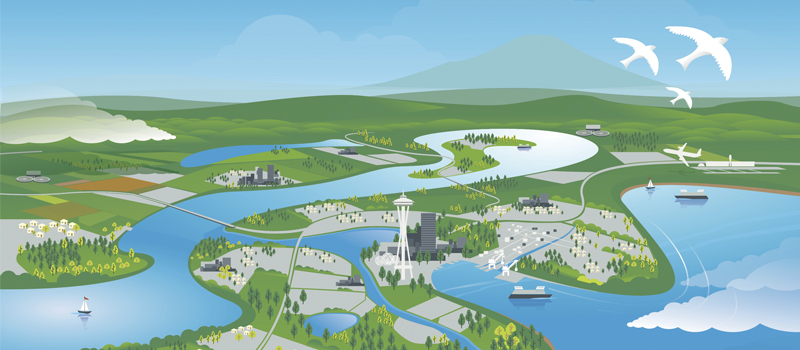Climate Change and Resilience
Climate Change and Resilience
Creating resilient and strategic solutions to climate impacts for our communities
The impact of changing climatic conditions to facilities, operations, and the broader community are top of mind for organizations across North America. As a leader in climate resilience, BC collaborates with clients to develop innovative and custom solutions to solve complex challenges while building adaptive capacity to remain flexible in the face of uncertain climate variability, including:
- Utilities, municipalities, and other public entities to instill transparency, trust, and stewardship into short- and long-term plans and projects
- Private companies to reduce business risks, increase opportunities for social impact, and reduce reputational risks (see how we are advancing water stewardship through ESG commitments and making data center water more water efficient)
- Public and private sector partnerships thrive through actions that are not only mutually beneficial but have a broader positive impact on the local communities, watershed, and environment
We work with clients to identify pathways that benefit local communities, support financial viability (e.g., creditworthiness), improve operations, reduce critical asset and facility liabilities, and enhance environmental stewardship.
We rely on methods for flexible design and adaptation, bolstered by a research team that tracks and pilots groundbreaking technologies. We identify and emphasize the connectivity of interdependent systems, giving focus to nature-based solutions that both mitigate and enhance a community’s response to climate change.
Awards
-
2021
National Safety Council, Occupational Excellence Achievement
-
2021
National Safety Council, Perfect Record Award
-
2021
Disability Equality Index, Best Place to Work for Disability Inclusion
-
2021
American Society of Civil Engineers Sacramento Section, Outstanding Sustainable Engineering Award
Partnering with clients to improve water stewardship and meet ESG commitments
Establishing a vision for meeting future water challenges


A history of delivering innovative and forward-thinking solutions
Building resilience through adaptive strategies


Restoration with the future in mind
Related News
Santa Monica takes landmark step toward water self-sufficiency
2021 International Water Conference
Data center water sustainability and stewardship
The Coming Revolution in Water Stewardship
Pure Water San Diego Program achieves major water delivery milestone
Related News